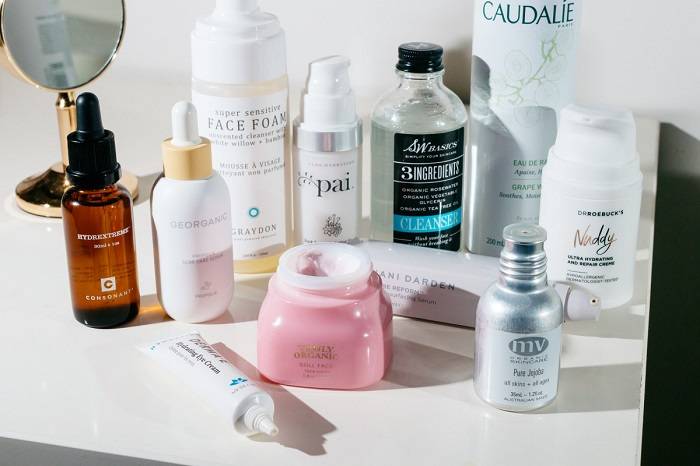Sensitive skin requires special care and attention to maintain its health and beauty. Whether you’re dealing with redness, irritation, or allergic reactions, finding the right skincare routine can make a world of difference. In this comprehensive guide, we’ll explore everything you need to know about caring for sensitive skin, from understanding its causes to selecting the best products and remedies.
Understanding Sensitive Skin

Sensitive skin is a common condition characterized by a heightened reaction to certain substances or environmental factors. It can manifest as redness, itching, burning, or stinging sensations, often leading to discomfort and frustration. Several factors can contribute to sensitive skin, including genetics, environmental triggers, and underlying skin conditions such as eczema or rosacea.
Identifying Triggers
One of the first steps in managing sensitive skin is identifying potential triggers. These can vary from person to person but may include:
- Harsh chemicals and fragrances found in skincare products
- Extreme temperatures and weather conditions
- Allergens such as pollen, pet dander, or certain foods
- Irritants like alcohol, sulfates, and parabens in cosmetics
- Stress and hormonal fluctuations
- By pinpointing specific triggers, you can better avoid or minimize exposure, reducing the likelihood of adverse reactions.
Creating a Gentle Skincare Routine
- When it comes to sensitive skin, gentle is the key. Opt for products specifically formulated for sensitive skin types, free from harsh chemicals, fragrances, and other potential irritants. Here’s a step-by-step guide to building a gentle skincare routine:
- Cleansing: Use a mild, non-abrasive cleanser to remove dirt, oil, and impurities without stripping the skin’s natural oils. Look for gentle formulas that are free of sulfates and alcohol.
- Moisturizing: Hydration is essential for sensitive skin, as it helps strengthen the skin barrier and reduce irritation. Choose a moisturizer with soothing ingredients like aloe vera, hyaluronic acid, or ceramides to lock in moisture and calm inflammation.
- Sun Protection: Protecting sensitive skin from the sun’s harmful rays is crucial in preventing further damage and irritation. Opt for a broad-spectrum sunscreen with SPF 30 or higher, and reapply regularly, especially when spending time outdoors.
- Treatment Products: If you have specific skin concerns such as redness or acne, look for targeted treatment products formulated for sensitive skin. Ingredients like niacinamide, green tea extract, and licorice root can help soothe inflammation and promote healing.
Choosing the Right Products

- When selecting skincare products for sensitive skin, it’s essential to read labels carefully and avoid ingredients known to cause irritation. Here are some key ingredients to look for:
- Hyaluronic Acid: This hydrating powerhouse helps replenish moisture levels in the skin without clogging pores or causing irritation.
- Oatmeal: Known for its soothing properties, oatmeal can help calm inflamed skin and relieve itching and discomfort.
- Ceramides: These lipid molecules play a vital role in maintaining the skin barrier, helping to lock in moisture and protect against environmental damage.
- Calendula: Derived from the marigold flower, calendula has anti-inflammatory and antimicrobial properties, making it ideal for sensitive or irritated skin.
- Squalane: A lightweight, non-comedogenic oil that helps hydrate and nourish the skin without leaving a greasy residue.
Natural Remedies for Sensitive Skin
- In addition to commercial skincare products, several natural remedies can help soothe and nourish sensitive skin. Here are a few to consider:
- Aloe Vera Gel: Known for its cooling and healing properties, aloe vera gel can help reduce inflammation and soothe irritated skin.
- Coconut Oil: Rich in fatty acids and antioxidants, coconut oil can moisturize and protect the skin barrier, reducing dryness and irritation.
- Chamomile Tea: Applying chilled chamomile tea compresses to the skin can help calm redness and inflammation, thanks to its anti-inflammatory properties.
- Honey: A natural humectant, honey helps draw moisture to the skin while its antibacterial properties can prevent infections and promote healing.
Lifestyle Tips for Sensitive Skin
- In addition to skincare products and remedies, certain lifestyle changes can help support sensitive skin health:
- Stay Hydrated: Drinking plenty of water helps keep the skin hydrated from the inside out, reducing dryness and irritation.
- Eat a Balanced Diet: Consuming a diet rich in fruits, vegetables, and omega-3 fatty acids can help support overall skin health and reduce inflammation.
- Manage Stress: Stress can exacerbate sensitive skin symptoms, so finding healthy ways to manage stress, such as exercise, meditation, or yoga, can be beneficial.
- Avoid Over-Exfoliating: While exfoliation can help remove dead skin cells and promote cell turnover, over-exfoliating can irritate sensitive skin. Limit exfoliation to once or twice a week, using gentle, non-abrasive products.
Consulting a Dermatologist
If you’re struggling to manage sensitive skin or experiencing persistent symptoms despite your best efforts, it may be time to consult a dermatologist. A dermatologist can help diagnose underlying skin conditions, recommend appropriate treatments, and provide personalized skincare advice tailored to your needs.
Caring for sensitive skin requires patience, diligence, and a gentle touch. By understanding your triggers, choosing the right products, and incorporating natural remedies and lifestyle changes, you can help keep your skin calm, balanced, and beautiful. Remember to listen to your skin’s needs and consult a dermatologist if you need additional support on your skincare journey. With the right approach, you can enjoy healthy, radiant skin, free from irritation and discomfort.








